 For those people who have already dealt with a slab leak, the term is pretty scary. It describes a leak that occurs in either the hot water (more common) or cold water lines that lie underneath your concrete foundation, and is a problem for the homes it happens in. Not only do slab leaks create a lot of water waste, they also can damage the property, lead to the growth of mildew and mold, plus add extra strain to the water heater if the leak is occurring in the hot water lines.
For those people who have already dealt with a slab leak, the term is pretty scary. It describes a leak that occurs in either the hot water (more common) or cold water lines that lie underneath your concrete foundation, and is a problem for the homes it happens in. Not only do slab leaks create a lot of water waste, they also can damage the property, lead to the growth of mildew and mold, plus add extra strain to the water heater if the leak is occurring in the hot water lines.
Our trained and experienced professional plumbers are well equipped to accurately locate and repair these issues. But what causes a slab leak to begin with? Shouldn’t a plumbing pipe that is set down in your concrete be pretty protected from the damage that can lead to pipe breaks and pinhole leaks?
Well actually, there are a few different things that can create a slab leak. Read on to learn more.

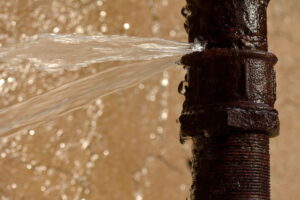 Plumbing leaks definitely make the top of the list when it comes to common problems faced by homeowners in our area. Pipes are designed to last a very long time, however, factors such as age and water pressure do take their toll eventually. As a result, a leak can spring up and leave you with property damage or at least wasted water. Our professionals can conduct professional leak detection services to determine where your leak is and accurately repair it.
Plumbing leaks definitely make the top of the list when it comes to common problems faced by homeowners in our area. Pipes are designed to last a very long time, however, factors such as age and water pressure do take their toll eventually. As a result, a leak can spring up and leave you with property damage or at least wasted water. Our professionals can conduct professional leak detection services to determine where your leak is and accurately repair it.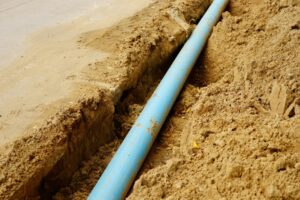 When it comes to modern homes, there probably isn’t a more important plumbing component than the sewer line. A broken sewer line leads not only to unsanitary conditions, but it can totally stop up any plumbing use you have in your home. Pretty much, you won’t be able to use your plumbing until you get it fixed. And for that, you’ll need a professional who can get the job done as quickly as possible.
When it comes to modern homes, there probably isn’t a more important plumbing component than the sewer line. A broken sewer line leads not only to unsanitary conditions, but it can totally stop up any plumbing use you have in your home. Pretty much, you won’t be able to use your plumbing until you get it fixed. And for that, you’ll need a professional who can get the job done as quickly as possible.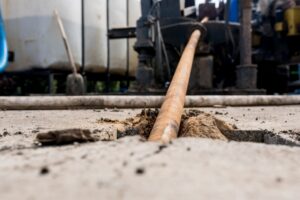 To answer this question, it first helps if you understand what pipe relining is. This describes a process where we insert, through trenchless technology, an inflatable lining that hardens once it’s inserted into your sewer line. This is the easiest way to fix leaks and other damage that may have occurred to your sewer line.
To answer this question, it first helps if you understand what pipe relining is. This describes a process where we insert, through trenchless technology, an inflatable lining that hardens once it’s inserted into your sewer line. This is the easiest way to fix leaks and other damage that may have occurred to your sewer line.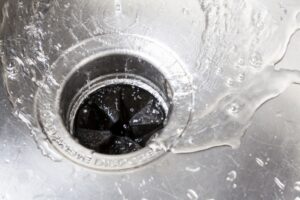 Before you toss that banana peel down your kitchen sink drain and turn on your garbage disposal system, read on! Although garbage disposals are very convenient and simply to use, they’re not designed to chew up all uneaten scraps. In fact, there are many items that homeowners wouldn’t even think are damaging for their garbage disposal system or their kitchen sink drain, however, they can do a lot of damage.
Before you toss that banana peel down your kitchen sink drain and turn on your garbage disposal system, read on! Although garbage disposals are very convenient and simply to use, they’re not designed to chew up all uneaten scraps. In fact, there are many items that homeowners wouldn’t even think are damaging for their garbage disposal system or their kitchen sink drain, however, they can do a lot of damage.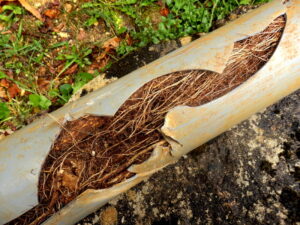 There are a number of reasons that your plumbing system’s sewer line is buried beneath your property. For starters, your yard and home are more visually appealing this way. It’s also for functionality as well as safety and hygiene.
There are a number of reasons that your plumbing system’s sewer line is buried beneath your property. For starters, your yard and home are more visually appealing this way. It’s also for functionality as well as safety and hygiene. Sometimes, it can be difficult to detect the kind of shape that your plumbing is in. In fact, most homeowners don’t think about their plumbing system very much at all, particularly when nothing is necessarily going terribly wrong. Out of sight, out of mind after all, right? Unfortunately, this isn’t the best mindset to have about your plumbing.
Sometimes, it can be difficult to detect the kind of shape that your plumbing is in. In fact, most homeowners don’t think about their plumbing system very much at all, particularly when nothing is necessarily going terribly wrong. Out of sight, out of mind after all, right? Unfortunately, this isn’t the best mindset to have about your plumbing. You may have heard the term slab leak before and not thought much of it. If you are a homeowner or even a renter though, then it’s a term you want to know. It’s the term given to any leak that occurs in the cold or hot water pipes that run beneath the concrete foundation of your home. Slab leaks not only create substantial water waste, but can also result in property damage, leading to mold and mildew growth among other issues. A slab leak can also add extra strain to your water heater if the leak is happening in the hot water lines—and this is most frequently where they occur.
You may have heard the term slab leak before and not thought much of it. If you are a homeowner or even a renter though, then it’s a term you want to know. It’s the term given to any leak that occurs in the cold or hot water pipes that run beneath the concrete foundation of your home. Slab leaks not only create substantial water waste, but can also result in property damage, leading to mold and mildew growth among other issues. A slab leak can also add extra strain to your water heater if the leak is happening in the hot water lines—and this is most frequently where they occur.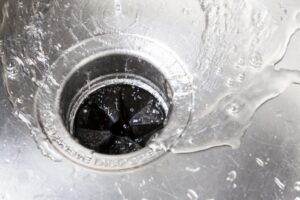 If you are one of hundreds of homeowners throughout Skokie and beyond that utilizes a garbage disposal in their kitchen sink, then you probably think it can handle just about anything. Garbage disposal systems are very convenient and easy-to-use. But, this system was not designed to chew up all your uneaten scraps. In fact, it doesn’t “chew up” much of anything.
If you are one of hundreds of homeowners throughout Skokie and beyond that utilizes a garbage disposal in their kitchen sink, then you probably think it can handle just about anything. Garbage disposal systems are very convenient and easy-to-use. But, this system was not designed to chew up all your uneaten scraps. In fact, it doesn’t “chew up” much of anything.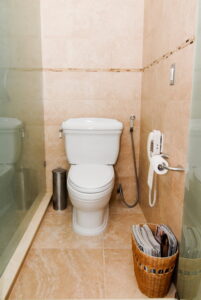 Do you know what part of your plumbing system gets the most use every day? If you guessed your water heater, you’re probably right.
Do you know what part of your plumbing system gets the most use every day? If you guessed your water heater, you’re probably right.